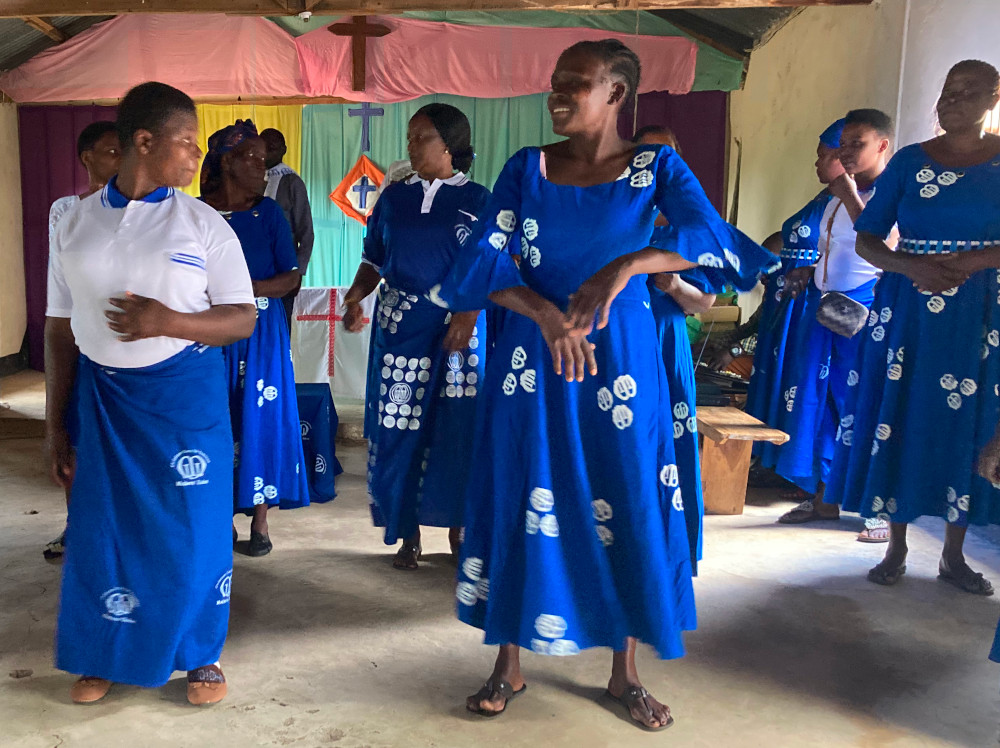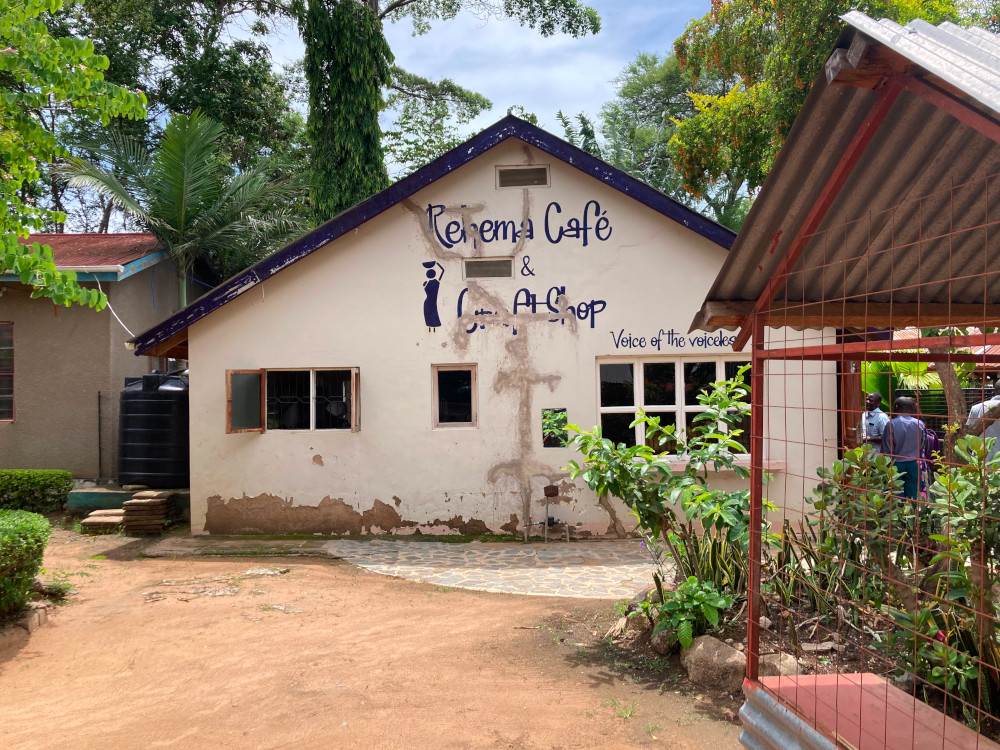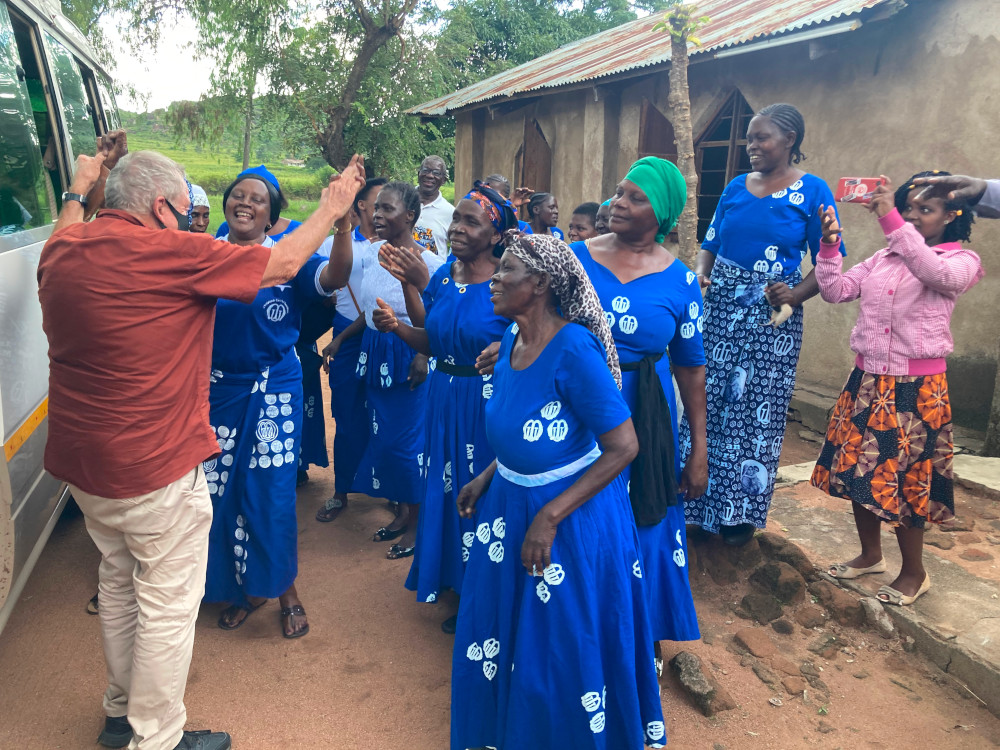Australia formed the Tanzanian church, Bishop George Okoth of the Mara diocese told the garcon-tiki tour group. When the Church Mission Society ran out of money and announced they would withdraw from Tanzania, Australian missionaries stood fast and declared they would stay. Bishop George outined the fruits of their work. The old Central Tanganyika diocese where the Australians worked has become 26, and Bible colleges and schools have sprouted across inland Tanzania.
We are honoured to have two veteran missionaries with us on the trip. Helen Hoskins is revered in Sydney and Tanzania. Glenn Davies once wrote of her time at Moore College. “Among that year of 1980 sat a young lady by the name of Helen Hoskins. Although our year produced a couple of Bishiops and a couple of theological lecturers, a few chaplains and a good number of rectors, it was Helen’s ministry with CMS that was to stand out among us all.”
After 35 years as a missionary in Tanzania, Canon Helen Hoskins is living on Sydney Northside, but her heart is clearly still in Tanzania. At lunch today, she recounted her early days in Tanzania when three single women plus one Tanzanian teacher ran the only Bible College in the region. Bishop George was one of the students at the Bible College. “Helen shaped me,” he told us. We’ll be travelling later to Bunda Girls Secondary School, one example of Hoskins’ determination to give the women of Tanzania real opportunities.
As in the Diocese of Tarime, girls’ schools, made affordable in Mara diocese, will lift the marriage age from 14 years and safeguard against Female Genital Mutilation.
Dorothy Prentice has been on the Gafcon-tiki tour with her rapid-fire translation of Swahili, helping us in the slightly tricky moments of the tour.
Like with Hoskins, the obvious pleasure the Tanzanian Bishops and others delight in meeting someone who inspired and shaped them is tangible.
The not-so-secret weapon of the Tanzanian church is the mothers union. The group split up, and I joined a team visiting an MU project in a tiny village called Karikukere. .Dissatisfied with a small church, the MU has already erected the walls of a much larger one. They have bought the roofing iron but are still raising money to buy timber for the roof trusses. They made us very welcome.

And of course they sang for us, looking resplendent in their MU blue. Then they showed us the pigs they are raising to pay for the roof timber. Melina Galinbona was our guide helping us understand what MU is all about.
At Musonga, where the Mara diocese is based, we visited a MU sewing centre – most of the young women were on a break. But it’s clear that the centre full of trundle sewing machines, quaint to Western eyes, funded by Anglican Aid, will buy these women economic independence.
We visited the Rehema cafe in the same complex, previously managed by CMS missionary Jono Vink, raiding money for the MU project “the safe house,” a refuge for young women and girls fleeing Female Genital Mutilation. It houses about 40 girls and women. MU also provides micro finance loans and traini9ng in how to run a small business.

Sitting in the cafe it is it occurs to me that the church is objectively feminist, pouring resources into lifting up women, empowering them through Mothers’ Union one of their main agents of change.

